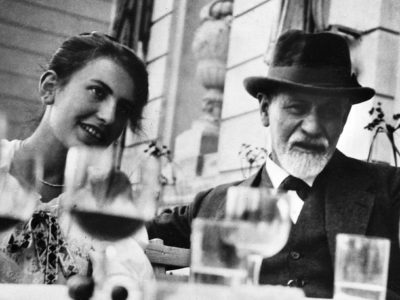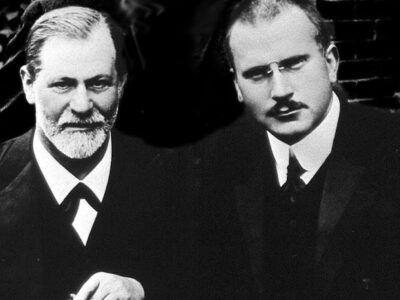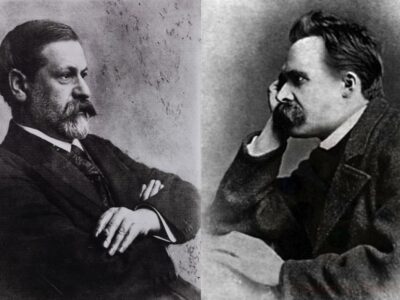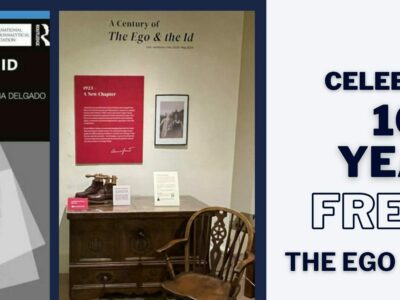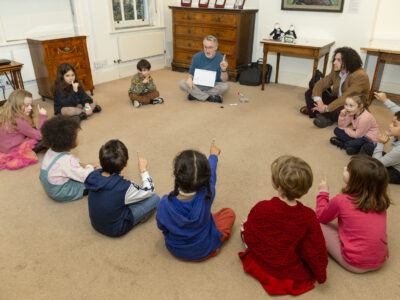
- This event has passed.
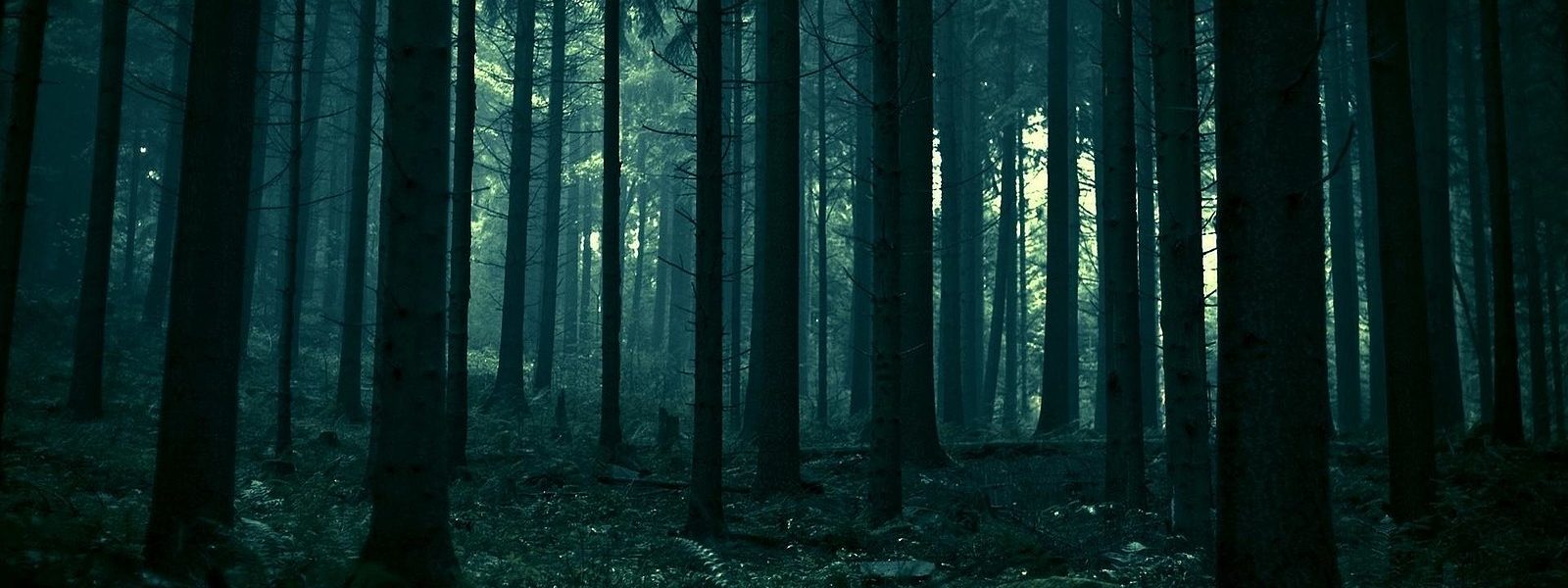
Forests haunt collective imaginations around the world, from the wolf-filled woods of the Grimms’ fairy tales to the Japanese practice of forest bathing. Growing on the fringes of human society, they are often seen as ambiguous, unpredictable spaces, equally capable of haunting and enchanting those who enter. Their maze-like qualities led Freud to identify them as uncanny: ‘when one is lost in a forest in high altitudes’, he wrote in Das Unheimliche, ‘every endeavour to find the marked or familiar path ends again and again in a return to one and the same spot’.
This online day course invites you to follow a breadcrumb trail through forests in folklore, film, psychoanalysis, the visual arts, ecology, and popular culture, from medieval associations between woods and madness to Eduardo Kohn’s ‘sylvan dreaming’, folk horror and the eco-Gothic, and Taylor Swift’s Folklore. We’ll explore ways in which forests have been used to think about the human psyche and its more unruly corners, as well as the boundaries between the human and the non-human. Across multiple media, these complex biomes have raised questions about ways of understanding our environment, but also our own identities.
Staged to celebrate May Day, and led by artist and folklorist Dr Elizabeth Dearnley and geographer, musician and filmmaker Dr Amy Cutler, this course beckons anyone with an interest in forests and the stories we tell about them to venture into the trees.
There is no set reading list, but we encourage attendees to bring along any images or short texts that they might like to contribute to a Miro board ‘virtual forest’ we will collectively create throughout the day. We also encourage people to bring dice for a storytelling game we will play in the first session (although virtual dice will also be provided!).
Image credit: JuanCholo / CC BY-SA 4.0
____________________________________________________________
SCHEDULE
- 10.00 – Session 1
- 12.00 – Lunch
- 13.00 – Session 2
- 15.00 – Break
- 15.30 – Session 3
- 17.30 – Finish
____________________________________________________________
Session 1: Into the Woods
This opening session traces the history of our tangled relationship with real and imagined forests, looking at enduring myths and beliefs about formidable ‘wild woods’ alongside geographical realities of these exploited habitats. We’ll explore the first broaching of forest space, in poems, theatre, and even virtual worlds and video games, as mental travellers or avatars. As a group, we’ll discuss our own experiences in and encounters with forests, from the arboreal to the psychological, to explore why these places continue to compel us. There will also be the space to create a virtual forest together in a collaborative storytelling game.
Session 2: Tangled Branches
‘You are always in danger in the forest, where no people are’, warns Angela Carter’s The Company of Wolves. As humans entering a non-human space, how do we see, feel, hear and navigate? Deep in the middle of the wood, we’ll explore the dangers and delights of these murky, magical green spaces in folktales, literature and cinema, from Hansel and Gretel to Lucile Hadžihalilović’s 2004 film Innocence. We’ll also move away from the anthropomorphic to consider the forest’s own perspective, looking at work such as Eduardo Kohn’s How Forests Think, and wider understandings of the sounds and sensations of the forest, from dreams, to echoes, to fungal networks.
Session 3: Emerging into the Clearing?
In fairy tales, going into the woods is a rite of passage, with the protagonist emerging older and wiser. Today, the forest continues to embody our dreams and fears – what can we learn from it now? In this final session, we’ll explore uncanny forest futures, from science fiction and architecture to real philosophies of environmental prediction (e.g. Edward Thompson’s radioactive forest photography and reimaginings of human-forest relationships such as China’s Liuzhou Forest City). Have we really emerged into the clearing, or are our fates tied together with the forest still?
____________________________________________________________
COURSE LEADERS
Dr Amy Cutler is a geographer, multi-media artist and filmmaker who works in experience design and the production of concepts of nature. Since achieving her PhD in Cultural Geography, she has taught at the University of Leeds, Royal Holloway, Goldsmiths, and London South Bank University in departments and disciplines including Visual Cultures, Game Design, English Literature, Art & Ecology, and Music. She also completed a Leverhulme Early Career Research Fellowship on the contested cultural meanings of British forests and their connection to artistic experimentation.
She often works in live cinema and sound design and creates immersive public experiences in cinemas, museums, or on field trips, exploring species, spaces, and nonhuman others. These include NATURE’S NICKELODEONS, her internationally touring ensemble science concert, which most recently took place at The Exploratorium, San Francisco. She has exhibited work and produced events for organisations including the BBC, Somerset House, Sheffield Doc/Fest, the Wellcome Trust, the Horniman Museum, International Documentary Festival Amsterdam, Late Junction, Tate Modern, the Museum of Witchcraft and Magic, the Horse Hospital, the Natural History Museum, and Kew Museum of Economic Botany.
Dr Elizabeth Dearnley is a folklorist, artist and Visiting Research Fellow at the Institute of English Studies within the School of Advanced Study, University of London. She has taught at the University of Cambridge, UCL, Birkbeck and the University of London, and her work explores fairy tales, horror and collective storytelling.
She has curated several projects exploring the intersections of folklore and place, including mass diary-writing project The Secret Diary of Bloomsbury, immersive 1940s Red Riding Hood retelling Big Teeth, and the Freud Museum London’s uncanny restaging of E. T. A. Hoffmann’s The Sandman as part of its The Uncanny: A Centenary. She has recently edited an anthology of scary fairy fiction, Fearsome Fairies (British Library, 2021), is writing a book about the relationship between forests and fairy tales, and together with Amy is working on a new project about the Cottingley Fairies.
PLEASE NOTE: Attendees will receive their unique link to join after registering, and will receive access to the recording 24 hours after the event. Please note: this event is taking place in GMT. If you are based outside of the UK, check the time difference to your region. Participants can be visible during this webinar but muted throughout.
BURSARY: A limited number of bursary places are available for those under financial hardship. Bursary places will grant access to the live and recording access for £15. We will try to give away as many bursaries as we can, but priority will be given to UK unemployed and PIP/ESA claimants. Please apply here.
MEMBERS
Click ‘Book now’ followed by the link ‘Enter promo code’. Enter your Members‘ discount code to receive a 20% discount on the standard price. NB: The discount code can be found in your most recent Friends of the Freud Museum email.
